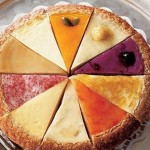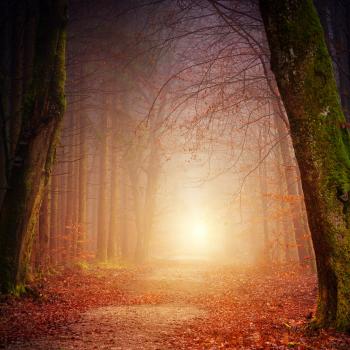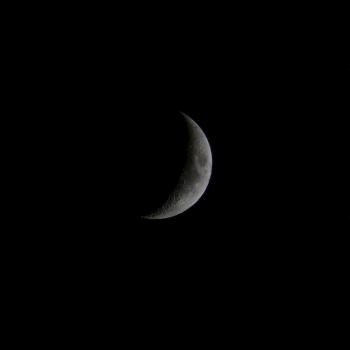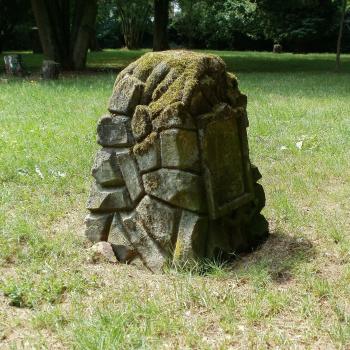I trust the Morrigan, completely. But trust Her to what? Never destroy anything I care about? No, actually. It isn’t Her nature. I trust Her to be Who and what She is. That is, not human, not inherently conscious of human needs and limitations, not necessarily concerned with all the same priorities that I am. –Morpheus Ravenna
When the Dierne came to me, at first I saw a very beautiful young man that held the world is in his hands. When he lifted his mask, I saw a monster.
Like any god, each of the Four is in their own way frightening and vicious. the Clarene is called the ‘gunpowder mother’ and also associated with all types of weaponry, and she claims to be competent with all of them. the Ophelia and Laetha are both huge birds – their bodies taking up the entire sky – made of fire (one blue, the other orange), and they are both associated with eating or otherwise devouring humans. And the Dierne is no less frightening, though he often wears the mask of a youthful sweet boy – he eats the hearts of men.
When we consider devoting ourselves to these gods, we need to work on restructuring our thoughts concerning what is ‘good’. While we may never see that side of the Dierne that rips beating hearts out of his lovers, or the side of the Laetha that splits worlds in two with a shriek, that side is there. Because these gods are tied to Faery, and faeries have an interesting relationship to humans (and vice versa), we also need to reevaluate how we approach ‘the Other’.
We call ourselves the ‘Other People’ because we join with that Other, learning and working with them.
Often, when we approach devotional work, especially that towards smaller spirits such as faeries, we’re focused on what we get out of the relationship. At least weekly I’ll read in a book or blog about how we have to cleanse our spaces entirely of all spirits, or there will be a long post floating around about a budding spirit worker freaking out over a phantom touch, and it always leaves me with a foul taste in my mouth. If we’re to engage with the spirit world and gods, we need to acknowledge that we are not the only important beings in the world. I dare say even atheist Pagans would agree that we’re not the only important creatures in the world – there’s an entire world of plants and animals out there. Our anthropocentric approach to interacting with the world hasn’t worked in the material realms, and it won’t work in the spirit worlds either.
It is when we approach the gods and spirits from a human-centric perspective that we so easily label them monstrous, frightening, or ugly. Many claim that faeries don’t have empathy, which I don’t think is true at all – they aren’t always empathic to humans. We are food to some of them. Claims that under the glamour faeries are hideous are judging beauty from very human standards. There is an air of superiority most people have when beginning spirit work and devotion.
This is why I mentioned autonomy in one of my previous posts. Gods and spirits makes their own decisions, and it doesn’t make them evil that their decisions don’t help you. If you go into the Otherfaith assuming the gods are here to serve you, the religion isn’t going to work out for you. In all likelihood, the gods will kick you on your butt until you get a better attitude.
Yes, you should be afraid of the gods on some level. Yes, you should be afraid of the faeries. If all you can see is the scary parts, if all you can think is how alien they are, you shouldn’t do the work – at least, not in the Otherfaith. You’re developing a relationship with non-human entities, and they deserve respect. If you go deep into the work, you’re going to have spirits that will be relying on you pretty heavily to take care of them, and you can’t do that well if you’re working from a place of superiority.
And the Four Gods will not hesitate to remind you that you are working with very powerful non-human entities. the Dierne very often appears human, and his glamours are lovely and enticing. Wealth, power, love, beauty! He also gives birth to two headed snakes and manticores and is patron to a line of faeries associated mainly with wooing and killing mortals. He holds out to us ten mirrors to reflect back who we are, and plenty of those mirrors are oriented towards breaking us. We can grab at the beauty and wealth around him, but there’s no guarantee he won’t cut our hand off.
He’s patron to all monsters, and he asks us to look into the mirror and see our own monstrous selves. He asks us what makes one a monster and pushes us to reevaluate our ideas of evil. He poses us questions about why we fear monsters. And he reminds us that just because we fear something doesn’t not mean we are entitled to kill it. We are not entitled to wipe away every spirit that knocks over a glass. Just because something is different does not mean it should be met with death.
Brian Froud writes very elegantly about how faeries can be a mirror of ourselves and our world and how they push our perceptions. They make us reconsider our assumptions. They question our taught patterns and beliefs. And they sometimes do that by being exactly what they are – frightening, monstrous. They have big, dripping mouths full of sharp, awful teeth. They trip us. They shout in our ears. They come to us as the most beautiful or most horrifying creatures we have ever seen. And even those faeries that we should give a wide berth of, we need to respect. Just as we are connected to other species on this planet, we’re intertwined with the spirits. We don’t need to invite every faery into our home – far from it! – but we do need to understand that just because something scares us does not mean it is evil.
After all, we all have something inside of us that scares us deeply and fundamentally, and trying to kill what is within us is just as ineffectual and damaging as it is when we try to do so outside of ourselves. the Dierne does not teach that we must be completely unmasked at all times, or that the monster inside of us must be obeyed – but he does ask that we see it, and we learn to live with it. We readjust our expectations and perceptions. We learn to be part of a wider community and have a broader outlook than an anthropocentric one. We learn to stop being scared of whatever goes bump in the night.
Other Posts of Tangential Relation
Firestarter – Twilight & Fire
Imperfection – Twilight & Fire
“There are general mindsets…”
“Be aware of what is around…”
Dreams Within Dreams
“What is it like to be around fae…”
















